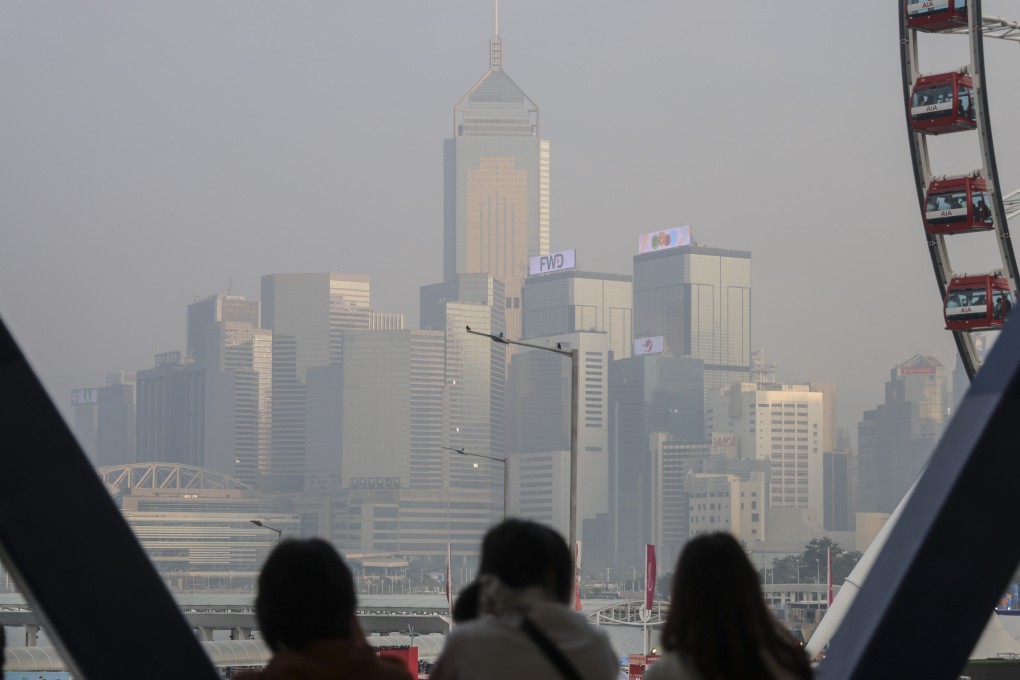Hong Kong clocks ‘very high’, ‘serious’ health risk readings from air pollution across city amid lack of strong winds
- Hong Kong environmental authorities say 11 monitoring sites recorded air pollution levels posing a very high health risk and another flagged serious reading
- ‘Winds will be weak during this weekend … It is expected that the nitrogen dioxide and particulates levels will be higher than normal,’ authorities add

Hong Kong environmental authorities have warned of “very high” or “serious” health risks from air pollution in some parts of the city, pointing to a recent lack of strong winds to disperse pollutants.
In Hong Kong, air pollution levels are graded on the Air Quality Health Index (AQHI), which uses a scale of 1 to 10 and a special “10+” reading that are grouped into the categories of low, moderate, high, very high and serious health risks.
The Environmental Protection Department on Saturday said it had recorded “higher than normal” air pollution levels, with 11 of its 18 monitoring stations as of 6pm flagging very high health risks and another coming back with a serious reading.
“Winds will be weak during this weekend, which is unfavourable for pollutant dispersion,” the department said. “It is expected that the nitrogen dioxide and particulate levels will be higher than normal. The Health Risk Category at general and roadside stations may reach high or above.”
The index takes into consideration four different types of air pollutants, comprising ozone, nitrogen dioxide, sulphur dioxide and particulate matter.
The serious health risk reading was recorded at the department’s Tai Po site at 6pm, while very high level ones were logged at 11 locations such as Sai Ying Pun, Causeway Bay, Central, Mong Kok, Tsuen Wan, Yuen Long and Sha Tin.
